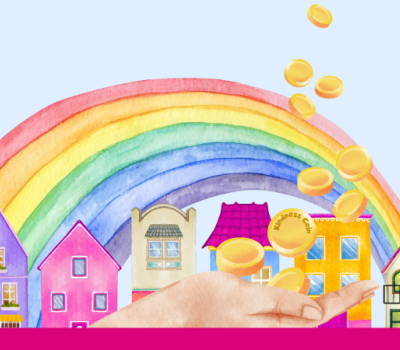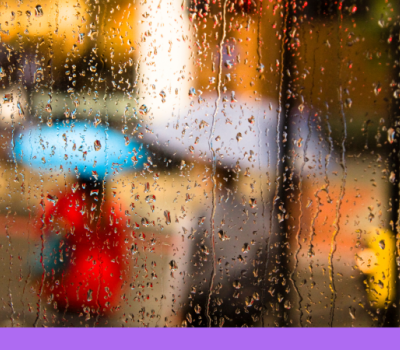Most parents send their children to school so that they can learn the basic skills needed to pursue future opportunities in work and community life successfully. However, vouchers actually get in the way of that successful learning. School vouchers have been shown conclusively to have negative, rather than positive, impacts on student learning.
The Research is Very Clear: Vouchers Don’t Work
While some early small-scale school voucher programs evaluated in the 1990s showed mostly neutral results, the past decade of research into voucher programs has been overwhelmingly reveal significant academic declines. The deluge of conclusive research on the negative impacts associated with voucher programs led Dr. Josh Cowen to write his book The Privateers.
“(I)n the years leading up to the COVID-19 pandemic, some of the largest academic declines ever apparent in education research record, on any topic, have been attributable to school vouchers. And yet the drumbeat to devote more and more resources to these voucher systems, after years of failure according to any standard used to evaluate public schools, remains louder than ever.”
- Dr. Josh Cowen, The Privateers: How Billionaires Created a Culture War and Sold School Vouchers
An analysis of different voucher programs across the country by the National Coalition for Public Education shows that the impact of voucher programs on student outcomes is comparable to, or even worse than, a natural disaster or a global pandemic. Voucher student achievement does not “bounce back” after these initial declines.

The Many Ways School Vouchers Fall Short
Money for private school or tutoring can sound like an excellent deal for parents - especially those who never dreamed they could afford a private school or are looking for more individual attention for their special needs child(ren). In reality, evaluations of school voucher programs in Indiana, Louisiana, Wisconsin, and Florida show that 20-30% of voucher students leave the program every year. This disruption to student learning and the stress on children’s friendships and peer group involvement is bad for kids.

How vouchers fall short:
- Quality Costs More: The voucher amount is not enough to pay for a good private school. Even with the voucher, families are stuck with large tuition payments, costs for extracurriculars, and transportation needs. This essentially negates the financial relief vouchers are supposed to provide for lower-income families. Meanwhile, wealthier families that can already afford private school tuition continue to benefit from taxpayer-funded vouchers.
- The School’s Choice, Not the Parents’: Schools that participate in the voucher program can choose whom they admit. They are allowed to reject students for any reason, including a diagnosed disability that the school doesn’t want to deal with. Private schools can, and often do, push out low-achieving students to preserve their reputation and test scores.
- Students Don’t Improve…or Worse: Parents don’t see the academic improvements they expect of private schools, which on average, aren’t that much better than public schools anymore. The performance gap between private and public school students has narrowed significantly over the years, meaning “(t)he assumed superiority of private schools may no longer hold.”
- Universal, Unaccountable Voucher Programs Fail Hardest: Years of research have shown that the more “universal” the voucher program, the worse the outcomes for participating students. Programs that started relatively small and quickly got bigger - like those in Florida and Utah - are performing worse as they grow. The less oversight that is baked into the program administration, the worse the student outcomes over time.
The “Mixed” Research on Vouchers Is a Myth
Pro-voucher politicians and advocates often incorrectly state that the research on whether vouchers work is “mixed,” with some positive and some negative studies. This is not true. School privatization proponents cite selective studies–backed by ultra-wealthy donors–that are typically small in scale or manipulated to support a predetermined narrative–regardless of whether the vouchers work or help kids.
For example, research on the voucher program in Cleveland, Ohio, showed some promising results. However, the study was based on only two schools out of 52, both of which happened to be completely funded by pro-voucher billionaire Sam Walton. The study was arranged for the express purpose of promoting vouchers and “proving” they worked. Subsequent and more comprehensive evaluation showed, at best, no difference in student achievement between voucher and public school students. Pro-voucher institutions and think tanks, funded by pro-voucher billionaires, regularly misrepresent their “research” on school voucher programs to fit whatever political narrative works in their favor.
Decades ago, pro-voucher activists argued that a “free market” approach to education would yield better results for students, as competition would drive better school performance. When the research failed to support that theory, they shifted the message to “vouchers help low-income kids of color in failing public schools”–but that evidence didn’t stand up to scrutiny either. Now they almost exclusively argue that “school choice” and “parental choice” are the goal of these programs, sidestepping the truth of their actual ineffectiveness for students. Voucher studies focus on things like “parent satisfaction” instead of education outcomes.
School Vouchers Don’t Help Our Kids - and Weren’t Ever Meant To
School voucher programs aren’t good for kids, but that has never really been the point. The spread of school vouchers across the states–and now at the federal level–is all about:
- reducing support and funding for public schools;
- increasing profits for private businesses;
- and ending universal, free education for all children.
Efforts to privatize public education are designed to create a system where access to quality learning is dictated by wealth—further marginalizing certain groups of students, and limiting their opportunities. Ongoing attacks on English language learner children, children with special education needs and LGBTQ children are evidence of this agenda.
Despite overwhelming evidence, politicians continue to defend and expand failing school voucher programs to benefit themselves. It’s been clear for years: school vouchers simply don’t deliver for kids, communities, or the common good.
Read more from our series, Vouchers and School Privatization:
Part 1: The Basics of Utah's New School Privatization Program

The first part of this series explains how Utah's school voucher program, titled Utah Fits All Scholarship, is meant to work and how it is managed.
Read Part 1Part 2: A Timeline of the School Voucher Steamroller in Utah

Part two discusses the steady steamrolling of school vouchers in Utah—a state where only 3% of students attend private schools, 5% are homeschooled, and the vast majority of families report high satisfaction with their local public schools.
READ PART 2Part 3: Utahns Like Their Public Schools, So Who Exactly Does Want Vouchers?

The third part of this series discusses public opinion on vouchers and how Utah's voucher push is part of a nationwide, billionaire-funded agenda to privatize education.
READ PART 3FAQ's: Understanding Vouchers and School Privatization in Utah

This FAQ page addresses key concerns surrounding school vouchers and their impact on Utah's education system, exploring the promises made by voucher supporters and the reality of their effectiveness.












